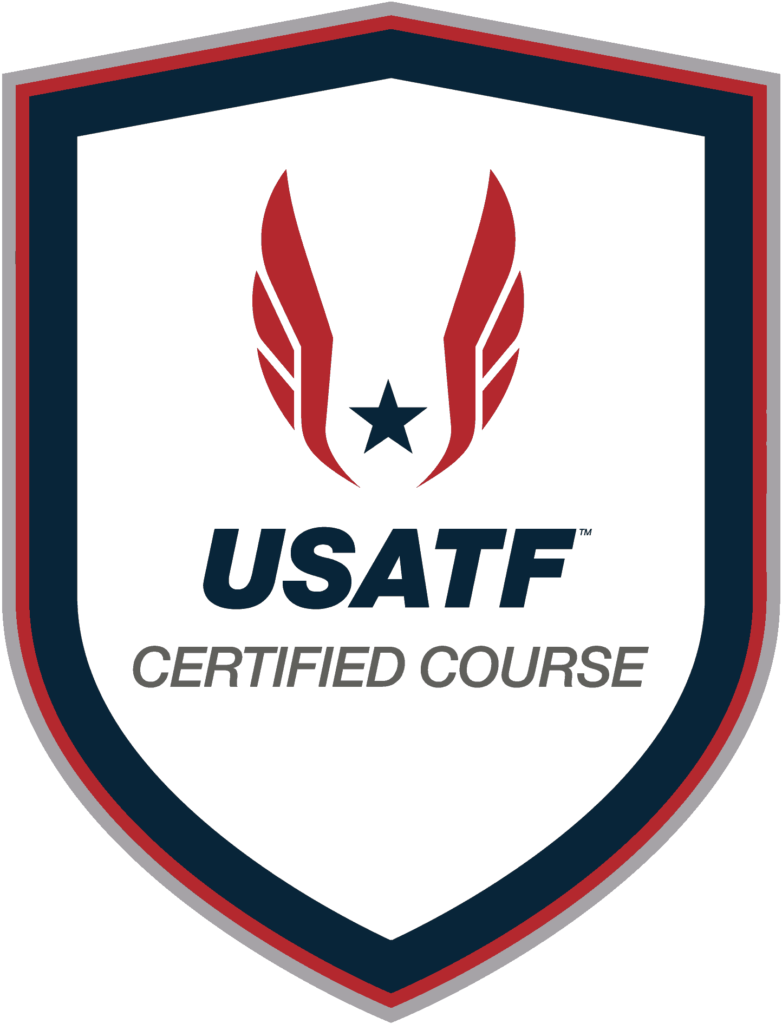
A USATF-certified course is a road race course whose distance has been certified for accuracy. A certified course is important for every participant, from the casual runner to those who break the finish line tape. Here are a few reasons why every road race should have a USATF-certified course.
Certification signals that your race is professional, trustworthy, and serious about the participant experience. Runners notice these details — and so do sponsors, volunteers, and the running community.
Protect Your Events’ Reputation
Nothing damages a race’s reputation faster than incorrect course distances. Social media is full of complaints about races that are too short or too long. I’ve measured courses for clients who received negative feedback from previous years’ uncertified routes. Deliver the advertised distance, protect your brand, and make your sponsors look good.
More Registrations & Higher Retention Rate
25% of North Texas runners I polled in the popular Runners Corner Facebook group said they would be unlikely to register for an event that does not have a certified course. Over 75% said that a course with an inaccurate distance would negatively affect their decision to return to that event the following year. Don’t let comments like the following be made about your event.

Participant Experience
Runners invest time, energy, and training into every race. A noticeably short or long course robs them of accomplishment, especially those chasing a personal record. Over 70% of North Texas runners in my poll said a short course negatively impacts their sense of achievement. Certification ensures participants get the experience they expect — and deserve.





“I have learned that if I truly care about setting a PR or accomplishing a goal from a running perspective, to only choose certified courses. As a coach, I typically only recommend my athletes run courses that they know are official distances. There is nothing more deflating than training for a race and finding out at the end that it is too short. Courses that are too long are not good either, but at least you can say you completed the distance. Finally, I think that shows a level of commitment and organization when a race or race director has their course length certified. It’s like they are saying (indirectly): ‘We care about the details.'”
—Rick Johnson, Coach & organizer of Craig Ranch Running Club.
Legitimate Race Results
A participant’s race result = time over distance. A runner’s finish time is only meaningful if the course distance is accurate. Hiring a professional timer is only part of the equation — accurate course measurement is just as critical to ensure valid, respected results.
qualification standards
Many major running events, such as the Boston Marathon, the Chicago Marathon, and New York Marathon, to name a few, require runners to qualify for admittance at a timed race on a certified course. Without a certified course, your participants will not be able to use their results to qualify for these events, nor will your event draw participants looking for an event to use as a qualifying standard for any of these “bucket list” races.
Records
Your event doesn’t have to host world-class athletes for records to be set. There are hundreds of records that exist. Who knows if one of these records can’t be challenged by a participant in your event? Even small, local races can be places where new records are set. Take, for example, this gentleman, who broke the 5K record for his age group at his local Turkey Trot race, or this Guinness running record, which was set by a Fort Worth local at a small race on a course measured by yours truly.
Cost-Effective Investment
The cost of course measurement is minimal when spread across participants — often less than a dollar per runner, even for smaller events. Certifications are valid for 10 years, provided the course remains unchanged. Over the life of a course, certification is one of the most cost-effective investments you can make, far less than T-shirts or other annual expenses.. Request a quote.

